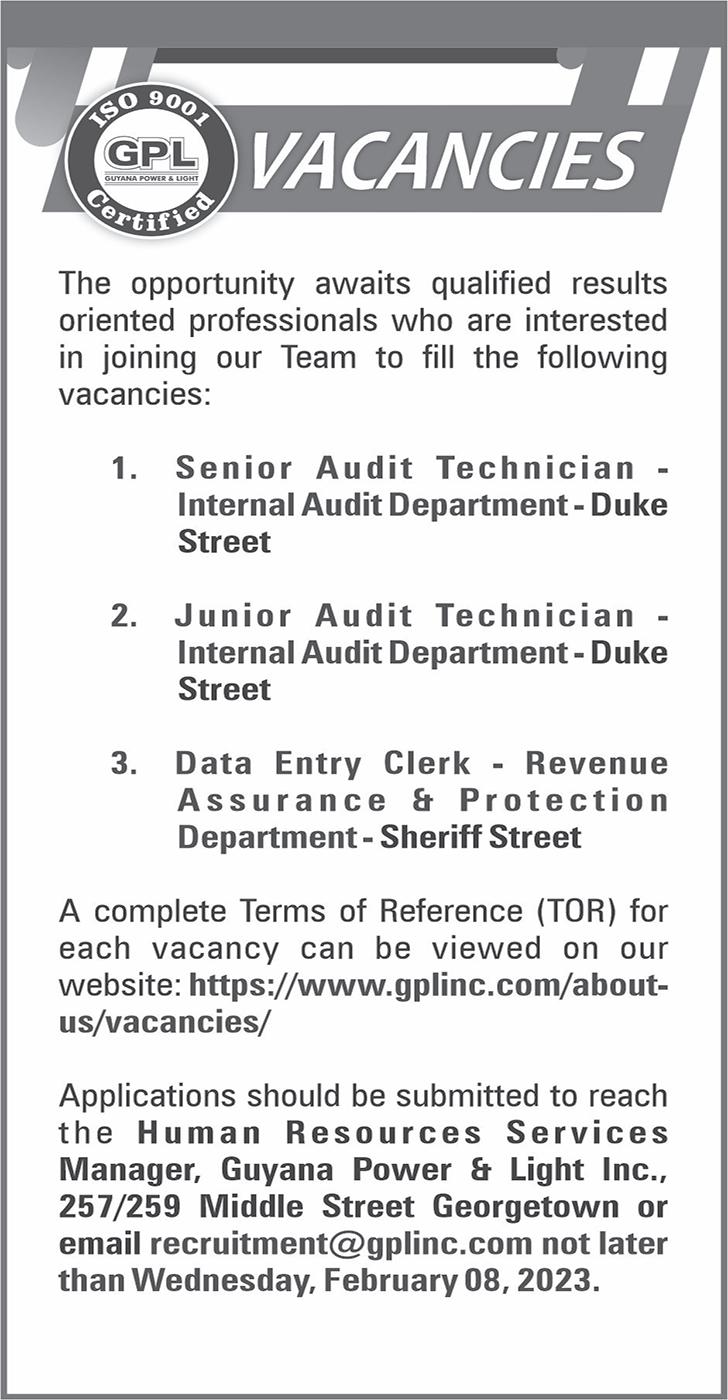
6 minute read
A smart, competitive Opposition pushes Government to do better
Dear Editor, Good governance requires enlightened leadership, possessing progressive vision, being grounded in a commitment to act morally; and the right persons who are best qualified to implement that vision, and who are effectively resourced.
George Tierney, an 18th-century English Politician, preached that the duty of Opposition was to “oppose everything and to propose nothing.” In my opinion, that ideology was pure cynicism, utter garbage, and what seems to be an absurd belief of many politicians in our country today.
Lord Randolph Spencer Churchill, however, declared a more sensible aphorism: “The duty of an Opposition is to oppose sensibly and logically.”
Opposition responsibility is oftentimes neglected and overlooked. Opposition parties are placed in an irresponsibility frame - a frame our Opposition is very fond of, considering the absolute buffoonery that is taking place, and the embarrassment they are putting us through.
The purpose of an Opposition is not only to be the minority that lost the election, but rather a concept of the people: for the people to represent the people by suggesting, recommending, and cooperating with the Government to develop the country.
In 2008–2011 Spain’s legislature, Zapatero Government was under increasing pressure because of the policy measures needed to be implemented following EU recommendations. In this circumstance, the main Opposition party, the conservative Popular Party (PP), united and delivered responsible behaviour, showing less opposition to initiatives because most policy decisions of the Government were in line with their policy preferences.
Critics claim that we ‘expect’ too much from the Opposition by placing the burden of responsibility on them. Indeed! We are expecting a lot from them! They are not there to make a mockery of our country; to incite hate, racism, and islamophobia; or block laws regarding the environmental care of our communities. They are not there to spread disinformation and hatred. Their responsibility should be to oppose decisions that would be disastrous or damaging to Guyana, and propose enhanced ideas.
Opposition parties play an important role in democracy. In Nepal, Nepali Congress is the main Opposition party. Congress is raising its voice at certain policies, to make the Government accountable while monitoring the Government’s activities effectively and professionally.
Democracy is a battle of ideas, one that depends on treating opponents as legitimate adversaries, not treasonous enemies.
An unbalanced system lacks stability. Excessive centralization of power and control, eroding public trust in the institutions of governance and reducing the effectiveness of the Government, puts that stability at risk. Sadly, that describes the state of our Opposition today.
The good news is that renewal is possible, and does not require a complex solution. What it takes is the will and commitment of the Opposition to eschew excessive centralization, and instead embrace the values and balance of our system, put forward inno- vative ideas, professionally and sensibly settle an issue, put personal biases and opinions aside, and put ALL citizens at the forefront of their decision-making processes.
A smart, competitive Opposition pushes the Government to do better, rethink its actions, and keep its competitive edge to win the next elections. Democracy requires representative and effective institutions, and demands respect for the rule of law. It requires a professional and effective Public Service, and is nurtured by independent and diverse media. It is anchored by an informed and involved citizenry, and balanced with a robust Opposition.
Respectfully,
Nazar Mohamed Businessman
erations in Guyana. The obvious question in these circumstances is: Why didn’t she drive these campaigns during those years? Why now? If, as she claimed, she is championing a good cause for the planet with utmost sincerity, then why a lawsuit with EEPGL, a subsidiary company of ExxonMobil in Guyana, together with the Guyana Government? This should be a global campaign, and she should be fighting her legal battle with the parent company in the United States (U.S) and in a U.S court of law, and NOT Guyana.
Having said that, here are some other critical questions that come to mind, for which the transparency advocate ought to provide answers for the Guyanese public:
1) It appears that she is suing Exxon and the GoG on behalf of the Guyanese people’s interest by way of protecting the environment. What is she suing Exxon for exactly?
2) Is it a declaration? If so, what are those declarations?
3) Is it for monetary compensation on behalf of the Guyanese people? If so, how much?
4) And if she wins this case, what would she do with the money she is suing for, if that is the case?
5) Will the money be deposited into a special fund?
6) Will it be transferred to the Consolidated Fund?

7) Will it be used in community development projects?
Notwithstanding the foregoing, for argument’s sake, let’s examine the merits and demerits of the attorney’s reasoning for the lawsuit against ExxonMobil –that is, fossil fuel is dangerous to the environment, and the risks it poses to mankind are deadly.
There is no doubt that fossil fuels are not climate-friendly, and that the world needs to transition to cleaner sources of energy.
It is within this framework that the development and exploitation of the resource need to be done in a sustainable manner, and in a way that minimises the environmental risks. These are also the new guiding principles upon which global industry operates.
In spite of this, the international attorney and transparency advocate opted to pursue an extreme position in addressing these issues with the oil companies in two ways: (1) by exaggerating the risks of the operations without credible scientific evidence and (2) by driving an extremist campaign for the oil companies to cease oil production in Guyana (only).
Yours sincerely,
Joel Bhagwandin Financial & Economic Analyst
Last week we began a new series directed at documenting bio-data which could be considered normal. We dealt with the normal temperature of dogs in coastal Guyana. Let’s continue with some normal values.
Pulse
The simplest way to ascertain the number of pulse beats per minute is to place your palm over the left side chest area, under the elbow (see Photo below). One then counts the number of impulses (heart beats).
The resting pulse rate in dogs has a range of 70130 per minute. There are differ - ent types of pulses, that can be described depending on the speed, shallowness, intensity, etc. But I don’t want to give you a superficial crash course in veterinary medicine; that is not the objective of this column. It is important, for starters, just to count the pulse rate per minute.


However, I must warn you that, especially in dogs, the heart rate varies greatly according to the breed (ergo size) of dog with which we are dealing. For example, a small dog like the Chihuahua (a Mexican dog that could weigh less than five pounds) has a resting pulse of 130. I suppose the rule of thumb is that small animals are hyper. A Great Dane, on the other hand, has a resting pulse of 80. Obviously, this dog’s size makes it more confident, and it does not feel the need to be yapping constantly to make a point and gain security. Unkindly and unfairly, I have heard friends call Chihuahuas ‘rats that bark’. The fact is that the smaller dogs tend to be more excitable, and consequently have a quicker pulse rate.

In addition, of course, any physical exertion, or disease presence, or adiposity (fatness), or even weather changes could influence the pulse rate. Also, it goes without saying that the pulse rate of a frisky puppy is usually higher than that of an older (aged) dog.

Veterinarians know that the pulse rate is elevated and on the high side of the 70-130 heart beats per minute range when it is measured in the clinic, simply because the animal’s heart rate increases whenever a Vet in a strange clinic approaches with a stethoscope (no different than the human/ doctor relationship). If the car ride to the clinic was long, then the pulse may be racing.
And as soon as the Vet places his/her hand on the chest area, you can be assured that the pulse will race. Of course, my longstanding patients, who come happily into the clinic with wagging tails for their check-ups, have no qualms about getting their vitals taken!
Breathing rate (Respiration)
The respiration rate in a dog lies somewhere between 10-40, with an average of about 18 breaths per minute. All the factors mentioned previously for pulse rates would also influence a dog’s normal temperature, and would also tend to influence the rate of breathing.
It is important that you record the pulse rate and the respiration rate at the same time. This information, added to that of the body temperature, makes for important and valuable evidence relative to the dog’s health status.
We’ll continue with this documentation of more physiological (normal) data next week.










